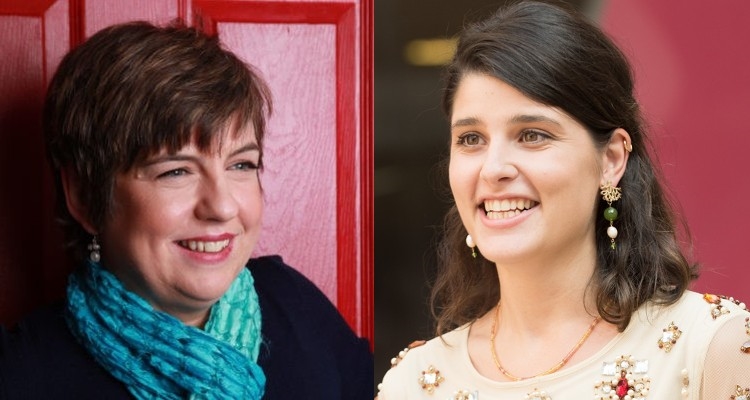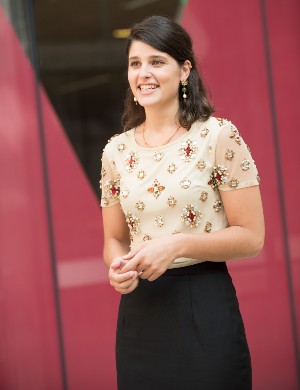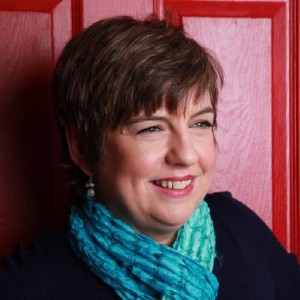Thu 28 Oct 2021

D&I consultant Teresa Norman (left) and inclusion researcher Delia Mensitieri (right) share actionable advice on how to create an inclusive workplace ahead of Fostering Conscious Inclusion at Work, the online event on 4 November
By Murielle Gonzalez
Belonging is the new buzzword in the diversity and inclusion space. We hear conversations about it, and the emphasis people put on the concept is rather intriguing because talking about inclusion already implies a sense of belonging.
"Inclusion in itself is about a balance between authenticity and belonging," says Delia Mensitieri, an inclusion researcher at Ghent University. She has spent the past two years conducting a study to determine which initiatives create an inclusive environment in organisations.
Mensitieri will be speaking at Fostering Conscious Inclusion at Work on 4 November. The online event offers a practical, immersive, and comprehensive training day, discussing how to create an inclusive workplace. More information is available online.
"It's interesting to see the emphasis right now is not on authenticity. Maybe authenticity will be the next word," says Mensitieri, noting this is part of a dynamic that has taken us to move from equality to diversity and inclusion and on to diversity, equity, and inclusion. "Although it’s good that we are discussing inclusion in more practical terms, we should not forget that the scope is not to get lost in terms, but that we need to take action and see how we can make sure that everyone feels included," she adds.
So why are we stuck in the terms and not focused on the actions? Mensitieri argues that inclusion is a very abstract term and belonging makes it much more tangible. "For example, you can say: 'I belong to a team' or 'my voice matters in this group'," she explains. Mensitieri notes that we should not forget about the authenticity part. “Organisations should strive to make everyone feel that their unique strengths are being appreciated and valued – this is as important as feeling that you belong,” she adds.
On the other hand, diversity is a much simpler term and it is something that organisations can easily measure and track. "Diversity is about having differences in a group of people," says Mensitieri. She notes that inclusion is a concept that touches various levels of an organisation — and organisations have to measure it on multiple levels, too.
For Mensitieri, inclusion also goes into perceptions and feelings: how included do I feel? Do I perceive my organisation to be fair, does my manager recognise and appreciate my different vision and ideas? “This means not only does inclusion touches various levels of an organisation — it means that measuring inclusion is multilevel and thus more complex,” she says.
Attend Fostering Conscious Inclusion at Work on 4 November to hear the panel discussion ‘Creating a shared culture of belonging where everyone can thrive’ with Gamiel Yafai, managing director at Diversity Marketplace, Tia Priest, head of Diversity & Inclusion at Department for International Trade, and Rob Neil OBE, director of Krystal Alliance and former civil servant. Register to attend.
Inclusion at work
Organisations are investing a lot of resources into creating an inclusive environment. However, such a task requires the implementation of a strategy on several different levels.
"Your inclusion strategy needs to account for the three levels — the team, the organisation, and the individual," says Mensitieri. "These levels are interrelated. So, for example, you can't talk about being an inclusive organisation if leadership is not inclusive. And you can't talk about an inclusive organisation if your practices and your strategies are not tailored to make everyone feel included," she adds.
Speaking at Fostering Conscious Inclusion at Work, Mensitieri will also examine the best approaches to tackling bias and removing barriers. Explore the agenda.
For Mensitieri (pictured), it is crucial not to pressure your staff into the organisation's D&I strategy. "In an inclusive environment, people should have the choice to decide what to share and what not to share," she says. "For example, people I spoke to during the International Day for Coming Out [on 11 October] complained that they felt pushed to say out loud their sexual orientation when it's not something they were comfortable with."
The other way around is also important. Mensitieri explains: “Don’t push your employees to make radical changes in their ways of working straight away. Take small steps, and make sure that people feel motivated to contribute to your strategy and that everyone feels that they can benefit from working in an inclusive and diverse workplace.”
The intangible aspect of inclusion
Diversity and inclusion in the workplace are about building a relationship with people, and as such, they’re rooted in emotions. “Although stories and experiences are important and should be considered, do not forget to make your progress and goals tangible. This way you can track and measure your initiatives,” says Mensitieri.
For Mensitieri, measuring diversity, equality and inclusion should be anonymous as you will ask sensitive information. “Always discuss with your DPO and legal officer what you can and cannot ask, how data should be stored and how anonymity can be ensured,” she explains.
So, what can organisations do to measure inclusion? What data can organisations use to support inclusion initiatives?
"You can become a diverse and inclusive organisation without data," says Teresa Norman (pictured below), founder and CEO of TogetherintheUK. She explains that organisations can have a good equal opportunities policy in place; leaders can be great managers, and organisations can be leading practitioners of inclusive recruitment. "But without data, organisations won't know what is working," she notes.
Indeed, data is crucial, and strategies tend to be warm words if they aren't underpinned by data. Norman recalls the time she was head of diversity at the Department for Transport. "We could tell ExCO that the promotion rates for Black and ethnic minority staff had increased by 10% and that the engagement survey also showed that the engagement score for disabled staff had increased by 10%. So, hard data can be very motivating," she enthuses.

Speaking at Fostering Conscious Inclusion at Work, Norman will examine recruitment design and the best practice to ensure equal opportunities for all.
"There are three sources of diversity data — recruitment data, staff data, and engagement surveys," says Norman. At the online event on 4 November, she will explain how an analysis of data can inform key decisions. Register to attend.
However, what can organisations do when staff don't share information relevant to the inclusion strategy?
Norman explains that staff and applicants often do not want to share diversity data for three reasons — they do not trust that it is confidential, they do not understand why the organisation is asking for it, or they just never make time for it.
She argues the way to deal with these issues requires clarity. "Organisations should make clear who has access to the data, and that it is not about identifying the individual, it is about identifying patterns," she says.
Norman also suggests organisations show how they are working with the data, for example by publishing summary reports or including it as appendices to the strategy — but most importantly, by taking action on it. "Show staff that it makes a difference," she concludes.
Fostering Conscious Inclusion at Work is a CPD-certified online event on 4 November.
Some of the sessions you don't want to miss:
- Beyond unconscious bias: taking a systemic approach to tackling bias and removing barriers with Delia Mensitieri, diversity and inclusion researcher, Ghent University; Corporate Trainer and Coach
- Workshop: redesigning your recruitment, progression and rewards processes to ensure equal opportunities for all with Teresa Norman, founder and CEO of TogetherintheUK
- Workshop Cultural Intelligence: a path to culture change with Dr Sandra Upton, VP, global diversity practice, Cultural Intelligence Center
Visit the event website to explore the agenda and book your place.
ABOUT THE AUTHOR
Murielle Gonzalez, content strategy manager at Dods Diversity & Inclusion, is an experienced journalist and editor. She can be reached on murielle.gonzalez@dodsgroup.com.
View all news